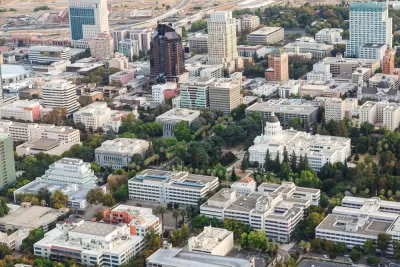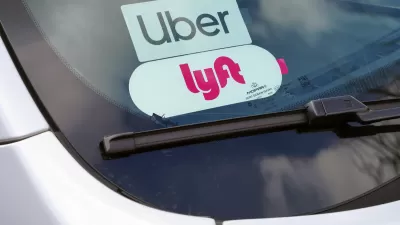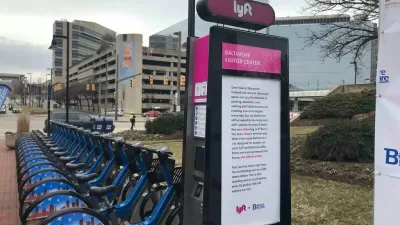Sacramento Regional Transit's SmaRT Ride service is an on-demand public option to compete with Uber and Lyft.

"It's a radical notion in the public transit world, unheard of just a few years ago," Tony Bizjak writes. "But the concept of public shuttle buses that act more like Uber cars is about to become a growing reality in Sacramento, at least on a test basis."
While on-demand microtransit has a mixed history in the private sector, "Transit agency officials say the experimental service – called SmaRT Ride – has shown enough promise that they plan to expand it to nearly a dozen neighborhoods around the county over the next year [...]."
The concept is meant to counter steady ridership losses to companies like Uber and Lyft. "Riders summon the shuttle via phone app or a phone call. The buses arrive within a half hour, not nearly as fast as an Uber car might." But prices are more reasonable. "Riders pay the regular transit fee, $2.75 for a single ride, $1.35 for seniors."
Civic leaders in the area tout the service as a solution to the challenges of operating transit in suburbia. "Fixed-route bus service is less expensive for SacRT to operate, officials said, but on-demand shuttles can pencil out in areas where bus ridership is low and per-passenger costs are higher."

Maui's Vacation Rental Debate Turns Ugly
Verbal attacks, misinformation campaigns and fistfights plague a high-stakes debate to convert thousands of vacation rentals into long-term housing.

Planetizen Federal Action Tracker
A weekly monitor of how Trump’s orders and actions are impacting planners and planning in America.

San Francisco Suspends Traffic Calming Amidst Record Deaths
Citing “a challenging fiscal landscape,” the city will cease the program on the heels of 42 traffic deaths, including 24 pedestrians.

Defunct Pittsburgh Power Plant to Become Residential Tower
A decommissioned steam heat plant will be redeveloped into almost 100 affordable housing units.

Trump Prompts Restructuring of Transportation Research Board in “Unprecedented Overreach”
The TRB has eliminated more than half of its committees including those focused on climate, equity, and cities.

Amtrak Rolls Out New Orleans to Alabama “Mardi Gras” Train
The new service will operate morning and evening departures between Mobile and New Orleans.
Urban Design for Planners 1: Software Tools
This six-course series explores essential urban design concepts using open source software and equips planners with the tools they need to participate fully in the urban design process.
Planning for Universal Design
Learn the tools for implementing Universal Design in planning regulations.
Heyer Gruel & Associates PA
JM Goldson LLC
Custer County Colorado
City of Camden Redevelopment Agency
City of Astoria
Transportation Research & Education Center (TREC) at Portland State University
Jefferson Parish Government
Camden Redevelopment Agency
City of Claremont





























